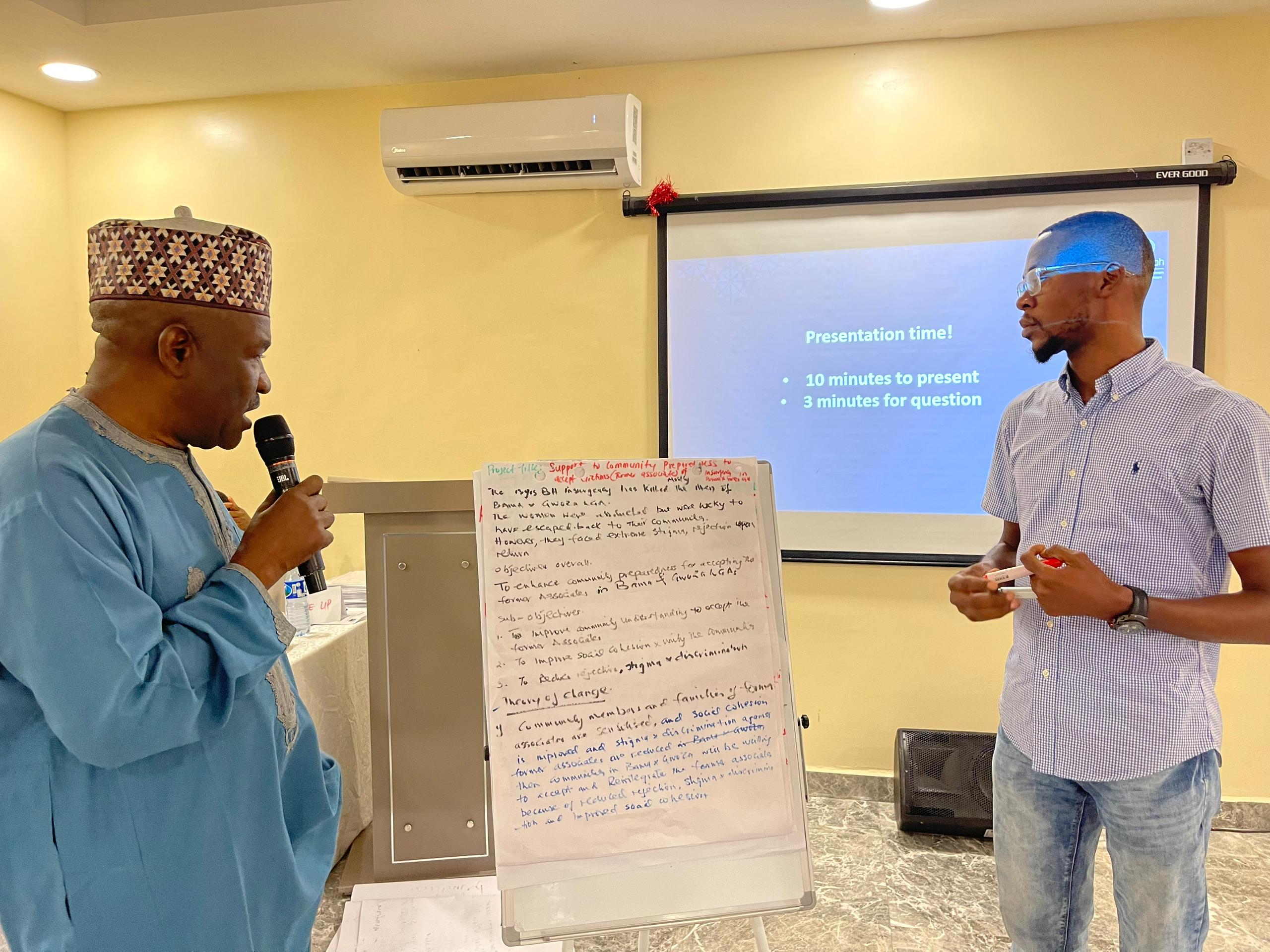•To support families in the North East on deradicalization
Jude Johnson
Neem Foundation and Hedayah have successfully trained Civil Society Organisations (CSOs) in Northeastern Nigeria on supporting families to counter violent extremism and propaganda from terrorist groups such as Boko Haram and the Islamic State in West Africa Province (ISWAP).
This initiative, supported by the European Union, was announced in a statement yesterday by the Director of Programmes at Neem Foundation, Mr. Ahmed Jumare, following the conclusion of a six-day workshop. The workshop was held from May 7th-9th and May 28th-30th at the Grand Sands Hotels in Maiduguri, Borno State, and brought together 32 participants from civil societies and organizations in Borno, Yobe, Adamawa, and Taraba states.
The Northeastern part of Nigeria has faced significant challenges due to Boko Haram activities and other terrorist organisations, leading to displacement, destabilisation of local security, and constant danger for communities. Many families in the region have members who have either joined or are susceptible to radicalization, potentially turning them into violent extremists. Reintegration of former members is further hampered as these individuals are frequently shunned or vilified by their home communities.
In response to these challenges, the Neem Foundation and Hedayah collaborated to train CSOs on supporting families to counter violent extremism.
Jumare said the training included a series of group activities designed to localize the approach, enhance understanding, and practically draft concepts, especially on the topics covered.
During the training, he said, facilitators from Hedayah joined virtually to support the sessions. Participants expressed their appreciation for the training modules, emphasizing the importance of the methodologies taught.
Muhammad Ngobdo Hassan, one of the participants, also highlighted the usefulness of learning how to engage with families needing reintegration support and the methodology to follow. “The training was very technical and very useful. If you don’t know how to conduct a needs assessment, code it, and identify critical issues to convert them into interventions, it’s challenging. This training has enriched our work,” he said.
Other participants noted the timeliness of the training, given the ongoing hardships caused by insurgents and the increasing number of Boko Haram members seeking reintegration. Ali Maina, representing GISCO, a local organization in Borno, stated, “This training has come at the right time. Countering violent extremism, deradicalisation, and reintegration in Borno State entail the Borno Model.
Resettlement is ongoing, and this type of training is very effective.”
The workshop also focused on how local organizations can fully support families through violence prevention and peace-building interventions, while also considering their emotional well-being. Participants were enlightened on providing psychosocial support.
Hauwa Muhammad, another participant, shared that her organization, Rehabilitation Empowerment for Better Health Initiative, previously focused more on victims than their families. “The community and its members must work together to support victims and their families, not just the organizations,” Muhammad emphasised.
Photo highlights
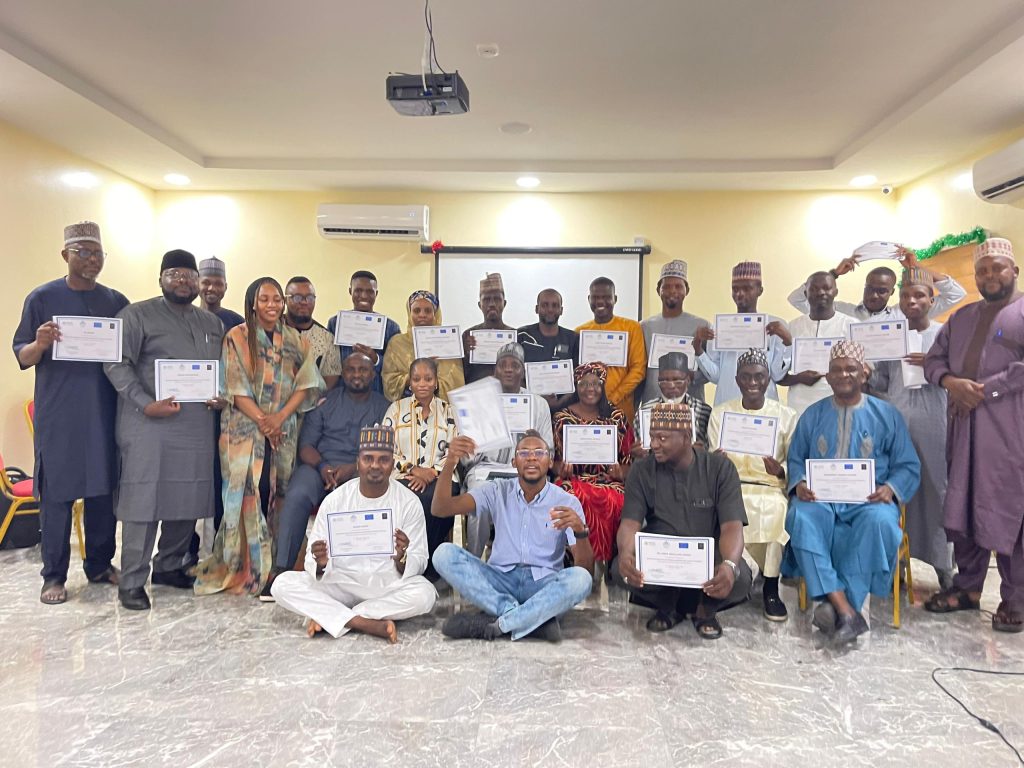
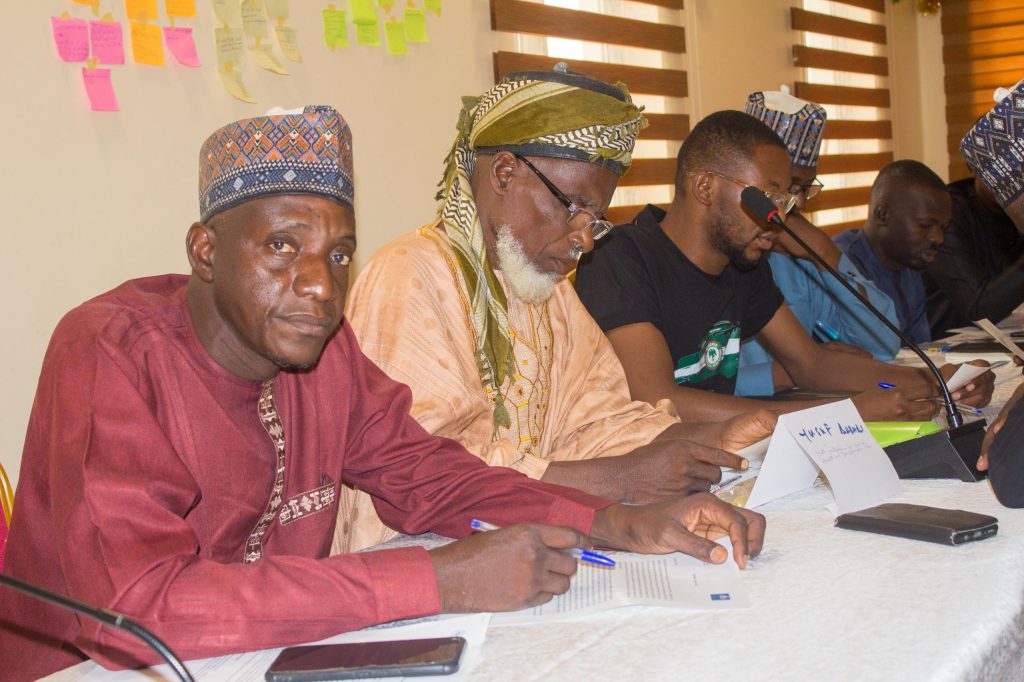
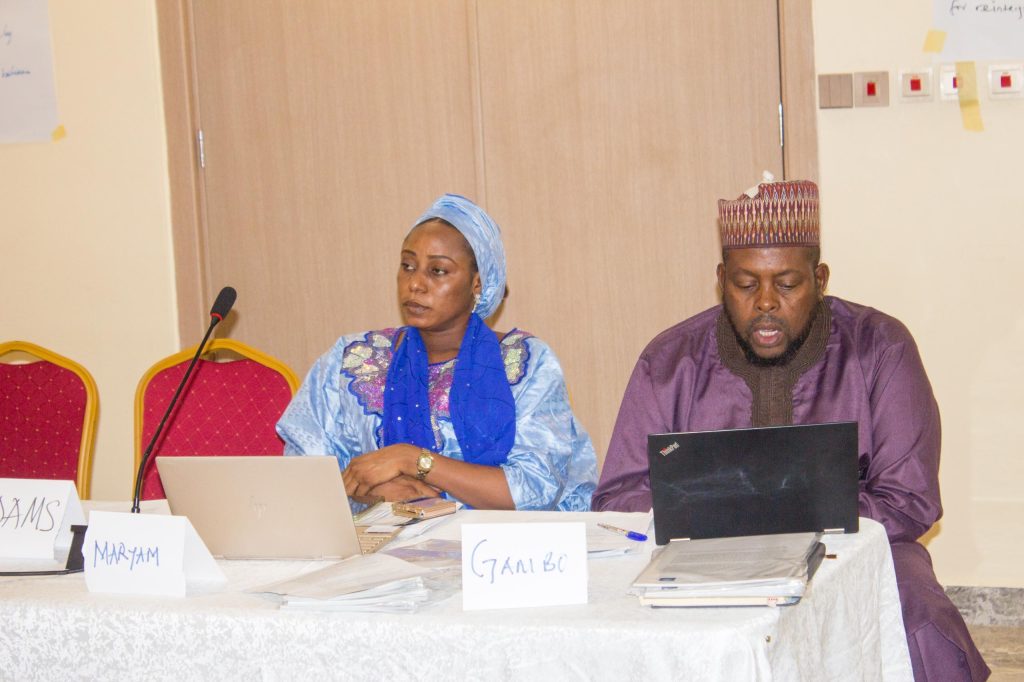
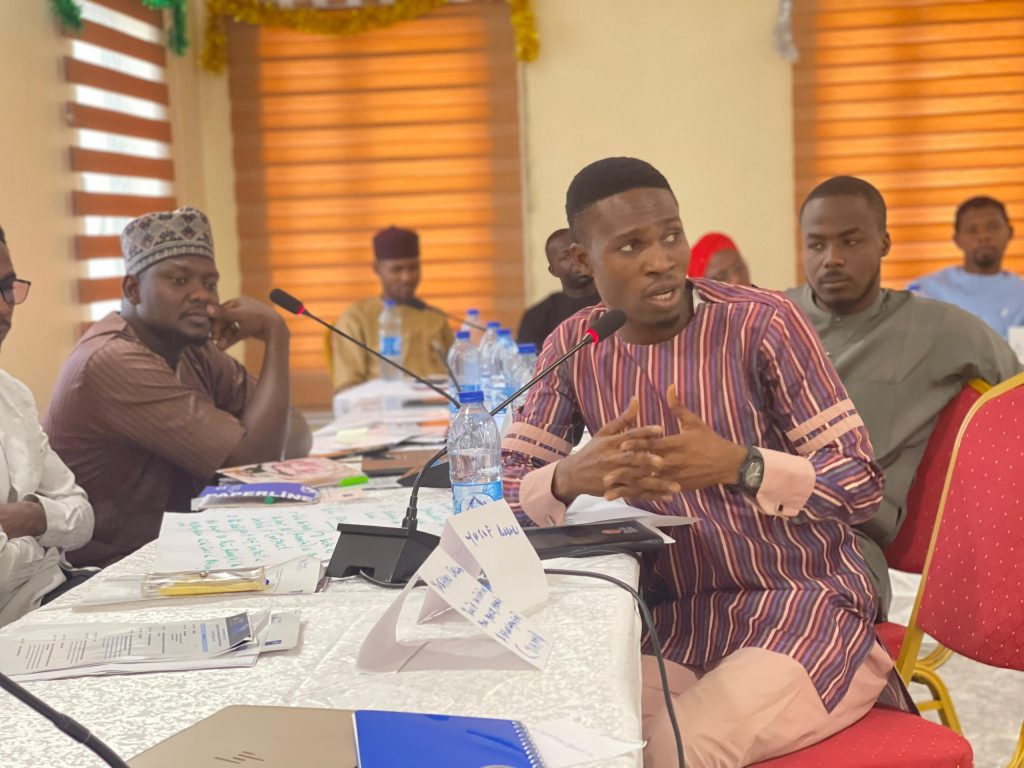
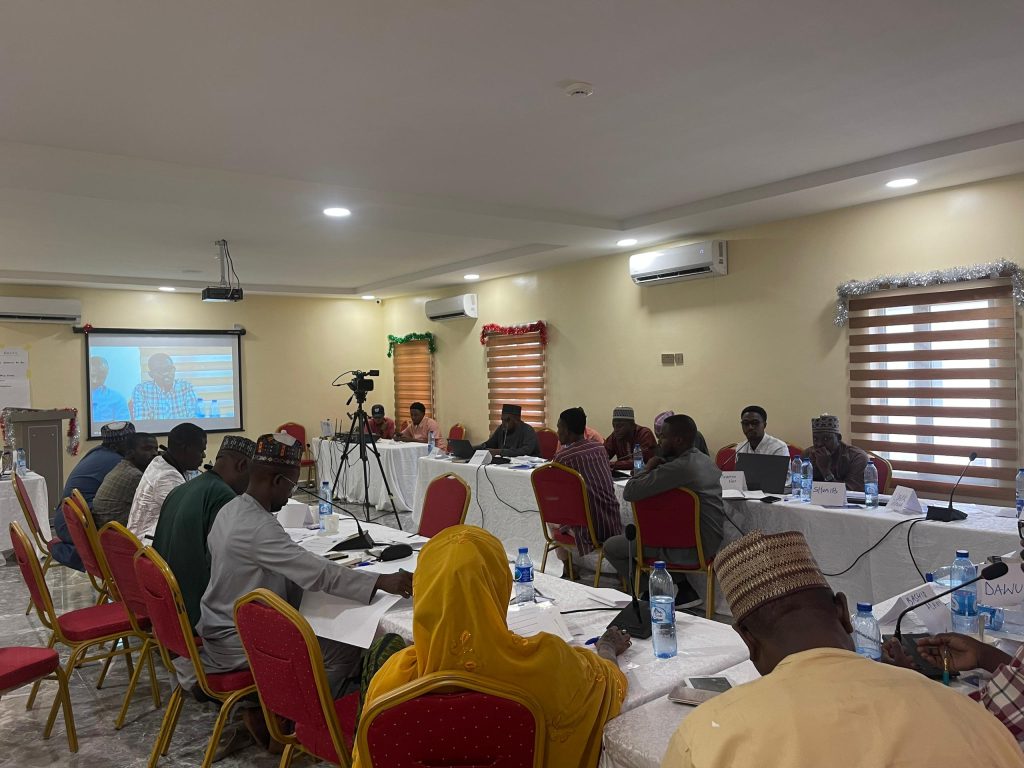
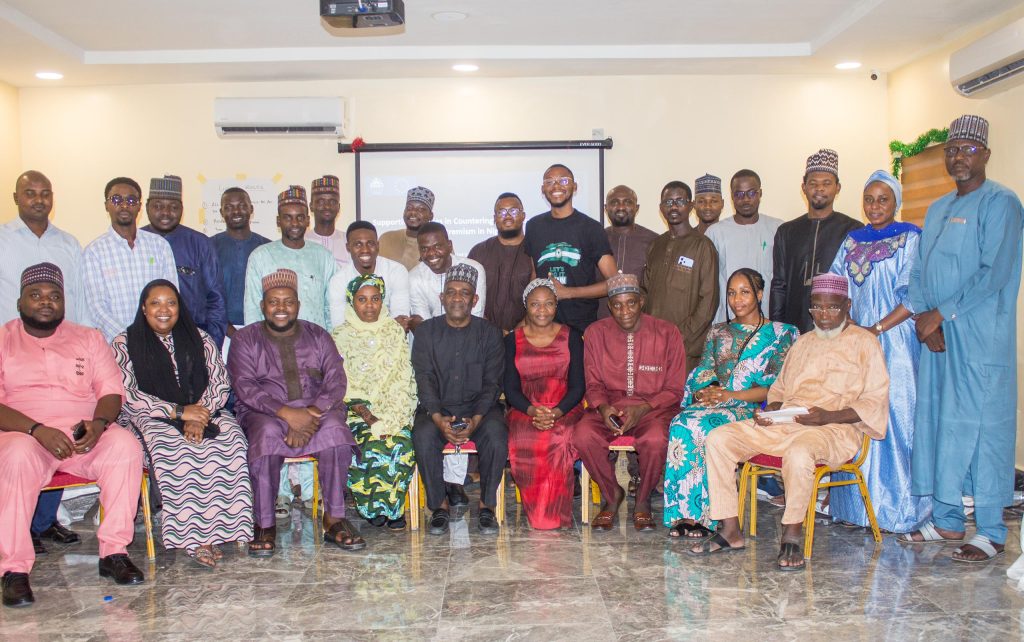
The training highlighted the importance of involving the entire community in supporting both victims and their relatives. Neem Foundation and Hedayah reiterated their commitment to further support organizations with similar training.
Participants vowed to cascade the training to their staff and use the knowledge in designing and implementing their projects in the region.
Certificates of attendance were awarded to the participants, and a group photograph was taken to mark the occasion.

